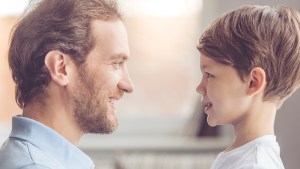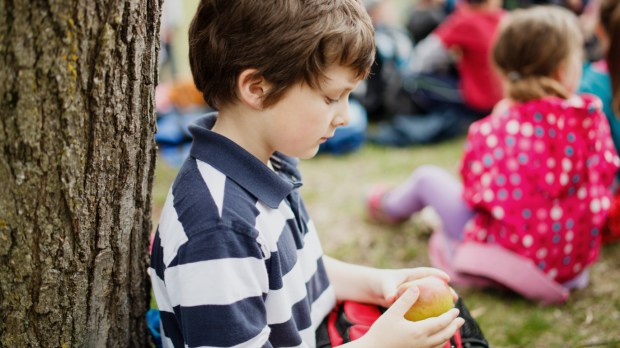When my oldest was little, I thought she was the bravest kid I’d ever seen. She wasn’t afraid of anything — strangers or separation, tall trees or bicycles. She embraced every new experience without the slightest hint of trepidation.
My younger ones were not the same, and I often worried about how fearful they sometimes seemed. I spent hours talking through the dangers they feared, reminding them that I would be right there holding the bike, or waiting for them after school. All that talking didn’t seem to do much to assuage their fears, though. Despite the fact that they would square their shoulders and start pedaling, or walk through the school doors, the next day we did the whole thing all over again.
It wasn’t until the last few years that I began to see something I’d been missing. My oldest began to balk at things, displaying what at first seemed to be an obstinate defiance. Once I unraveled it, though, I realized it was something different: fear.
Fearlessness is not the same thing as bravery, though many of us (me included) wrongly conflate the two. My oldest didn’t have many fears when she was younger, so she was unprepared to deal with them as she got older. My younger kids had lots of fears, but they displayed the bravery to face them … as long as I didn’t manage to talk them out of it.
My 3-year-old goes to in-home daycare with an incredible lady he calls Miss Lisa. She’s taught me a lot about how to teach a child to be brave, and it all boils down to one essential truth: if you want to teach your child to be brave, you have to show them what bravery looks like. When a toddler cries at drop-off, you don’t pick them up, cradle them, kiss them, and tell them that everything will be okay. You just smile brightly, tell them to have a great day, and walk away.
It sounds cruel at first, I know, but it’s not. You’re not ignoring your child’s fears — you’re actively showing them that they are safe, secure, and okay by being safe, secure, and okay about it yourself. You’re teaching them to be brave by showing them what bravery looks like.
Now, you don’t have to go out and face your worst fears or slay dragons or anything. But you do have to show your child that you believe they can do whatever it is they’re afraid of. Not by telling them, or explaining why — dwelling endlessly on it actually undermines a child’s confidence. Think about it — if you have to convince yourself that you can do something by dwelling on potential consequences or reminding yourself of all the precautions you’ve taken, do you really believe you can do it? Down to your bones?
Or course not. Kids are smart — they know this instinctively. Explaining why they’re safe if things go wrong is the worst thing you can do to help a child face and overcome a fear, because it conveys the unspoken assumption that you believe things will, in fact, go wrong.
But if you show your child that you have unshakable confidence in them, so much so that you don’t spare the slightest second worrying about it or indulging their own worry, they’ll get the opposite message: there’s nothing to be afraid of, because Mom or Dad isn’t worried at all.
Here’s the thing: this is so hard to do, especially as our kids get older. It’s hard enough to smile at your tearful toddler and walk away, even when you’re 100% convinced that he or she is going to be safe and sound while you’re gone. It’s infinitely harder to let your teenager face a difficult social situation and just say, “I know you’ll do the right thing.”
Sometimes they won’t, of course. But remember when you were a teenager? What was worse — facing punishment, or facing the disappointment in your parents’ faces? The punishment was always beside the point — for me at least; the worst part was the sinking, awful knowledge that I had disappointed my parents.
That’s what you want to instill in your children, so that when they’re adults they’ll be brave enough to do hard things — to face their own or other’s disappointment when they fail, pick themselves up, resolve to do better, and then try again. That’s what the virtue of bravery ultimately comes down to — not the absence of fear, but the fortitude to persevere in the face of fear.
It can’t be taught in words. You can talk all day to your kids about being brave, but unless they see what bravery looks like, they’ll never understand … much less internalize it. So be brave, parents — show your kids the unshakable faith you have in them, and they’ll find that same unshakable faith in themselves.

Read more:
If we want courageous adults, we have to raise courageous kids

Read more:
22 Positive things you should say to your children

